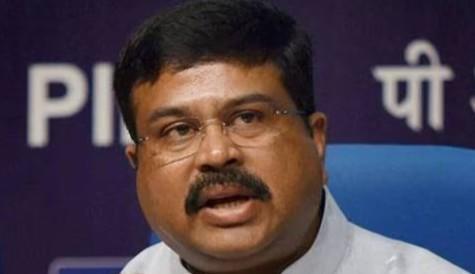
Title: Beginning of a New Era of Equality: Pradhan on Caste Census Decision
The recent decision by the Indian government to include caste data in the upcoming Census of India has been hailed as a significant step towards promoting equality, harmony, and good governance. Union Minister Dharmendra Pradhan has gone on record to say that this decision marks the beginning of a new era of equality, and we couldn’t agree more.
The inclusion of caste data in the census is a vital step in understanding the socio-economic and educational disparities that exist in our society. For far too long, marginalized communities have been neglected and overlooked, leading to a lack of targeted policies and programs that address their unique needs. This decision will help to bridge the gap between different castes and communities, ensuring that everyone has an equal opportunity to thrive.
Pradhan’s comments on the matter are particularly noteworthy. He has emphasized that this decision is a positive step towards keeping the deprived and backward at the centre of policy-making. This is a crucial point, as it recognizes that those who have been historically marginalized and excluded must be at the forefront of any efforts to address their needs.
The inclusion of caste data in the census will also help to remove social, educational, and economic inequalities. By understanding the specific challenges faced by different castes and communities, policymakers can develop targeted interventions that address these issues head-on. This will lead to greater social cohesion and harmony, as everyone has an equal opportunity to participate in and contribute to society.
Moreover, Pradhan’s comments highlight the importance of data-driven decision-making. In the past, policies have often been developed without a clear understanding of the needs and experiences of marginalized communities. This has led to ineffective and unsustainable solutions that fail to address the root causes of inequality. By incorporating caste data into the census, the government is taking a data-driven approach that will help to develop more effective and targeted policies.
The benefits of this decision extend beyond the realm of social justice and equality. By addressing the socio-economic and educational disparities faced by marginalized communities, the government can also boost economic growth and development. Studies have shown that increasing social mobility and reducing inequality can lead to significant economic benefits, including increased consumer spending and improved productivity.
Furthermore, the inclusion of caste data in the census is a significant step towards promoting transparency and accountability. By making this data publicly available, the government is demonstrating its commitment to transparency and accountability. This will help to build trust between the government and the public, as citizens will have a clearer understanding of the data and the decisions that are being made.
In conclusion, the decision to include caste data in the upcoming Census of India is a significant step forward in promoting equality, harmony, and good governance. Pradhan’s comments highlight the importance of keeping the deprived and backward at the centre of policy-making, and the benefits of this decision extend far beyond the realm of social justice and equality.
As we move forward, it is essential that we continue to prioritize the needs and experiences of marginalized communities. By doing so, we can create a more just and equitable society that benefits everyone. The inclusion of caste data in the census is a crucial step in this direction, and we must continue to build on this momentum to create a brighter future for all.
News Source: https://x.com/PTI_News/status/1917568512463364149






